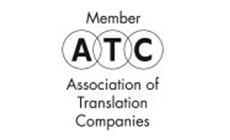Website localisation is crucial for achieving global market success because it involves more than just translating text. Localisation adapts a website to meet the linguistic, cultural, and regulatory expectations of a specific target market. Here’s why this process is so important:
1. Enhanced User Experience
Language: Offering content in the native language of users improves comprehension and engagement.
Cultural Relevance: awareness Adapting visuals, colors, and symbols to align with local cultural norms makes the site more appealing and relatable.
Local format: Adjusting date formats, currency, units of measure, and addressing standards ensures that users find the site intuitive and easy to use.
2. Increased Trust and Credibility
Localised Content: Users are more likely to trust and feel confident in a website that understands and respects their cultural context.
Customer Support: Providing customer service in the local language with localised solutions helps build a loyal customer base.
3. Higher Conversion Rates
Tailored Marketing: Localised marketing messages resonate better with the target audience, leading to higher engagement and conversion rates.
Optimised users journey: When users find a website easy to navigate and relevant, they are more likely to complete desired actions, such as making purchases.
4. Improved SEO and Online Visibility
Local Keywords: Incorporating region-specific keywords improves search engine rankings in local markets.
Domain Strategy: Using country-specific domains (ccTLDs) or subdomains boosts local search performance and credibility.
5. Competitive Advantage
Market Penetration: Successfully localised websites can outperform competitors who have not adapted their online presence to local markets.
Brand Perception: A well-localised site demonstrates a company’s commitment to the local market, enhancing brand image and customer loyalty.
6. Regulatory Compliance
Legal Requirements: Localising ensures compliance with local laws and regulations, such as data protection and consumer rights.
Accessibility Requirements: Meeting local accessibility standards helps in catering to a broader audience, including those with disabilities.
7. Scalability and Growth
Market Adaptibility: Localisation allows businesses to enter new markets more effectively by addressing specific local needs and preferences.
Sustainable Growth: Consistent user satisfaction in various regions fosters sustainable long-term growth and expansion.
Conclusion
Language service providers have the knowledge, skillset and experience to localise your website, ensuring your web content resonates with your target audience and also complies with international formatting and legal requirements. Collaboration with linguistic expertise will therefore be an investment in not just the translation of your website, but the overall impact and success of you brand.
Prime Production is a one-stop language provider based in the UK and Asia. Having provided translation, interpretation, desk-top publishing and website localisation services for over a decade, we have a wealth of knowledge in adapting digital content. Websites can vary in technicality, content and volume but our experience in project management, coupled with our linguists’ expertise, ensures that your brand will be well received and understood by readers around the world.












